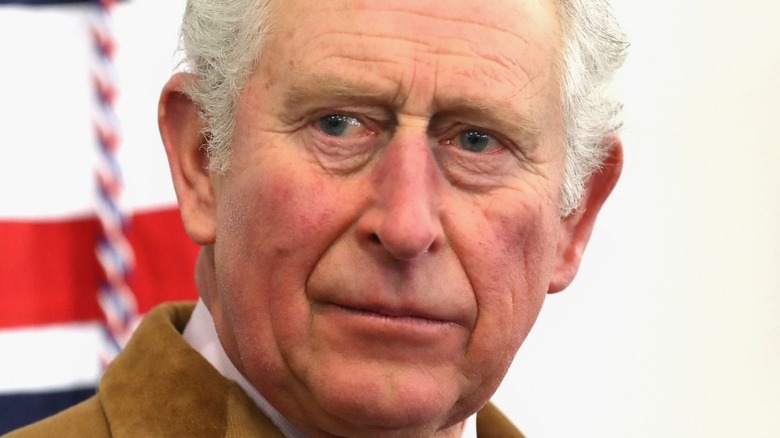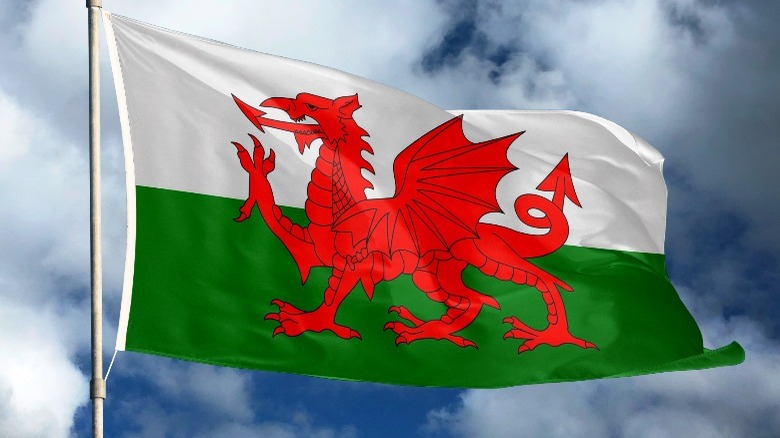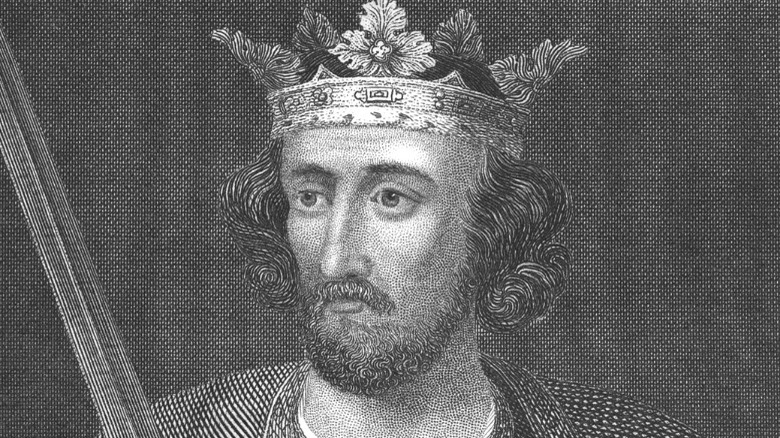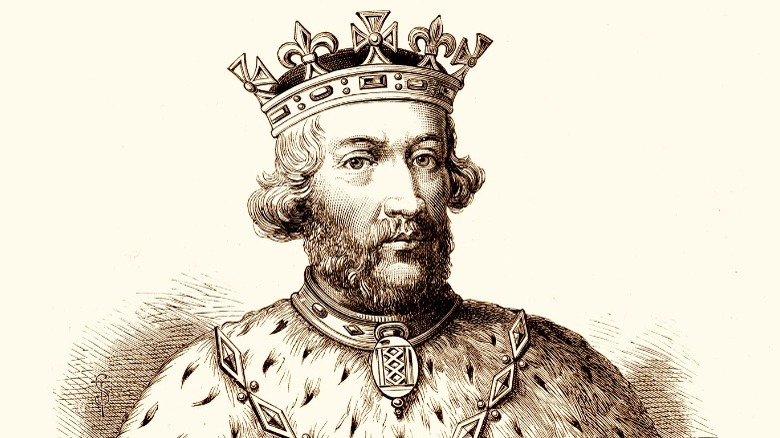Who Was The First Prince Of Wales?
The subject of royal titles throughout history can get rather complicated. Over the decade the complexity of this issue has come up more often, especially within the British royal family. According to Town and Country, there have been a handful of royal marriages, new babies, and a few public scandals that have brought many changes to the royal family line and titles. Currently with the passing of Her Majesty Queen Elizabeth II on September 8, the issue of royal titles was thrust into the spotlight once again.
Following the death of his mother the queen, Prince Charles ascended the throne to become King Charles III (via Biography). When he picked up the mantle of king, he vacated his previous title as the Prince of Wales. In his first public speech, he bestowed the title on his older son, Prince William. In the same speech he named Prince William's wife, Catherine, Princess of Wales (via Ancient Origins).
Prince of Wales is arguably the most recognizable of the British royal titles. It has a long history in the royal family, dating back hundreds of years.
Before this title was used by the English, it belonged to the Welsh
It would make sense that to be a Prince of Wales you would need to be a prince from Wales. According to Ancient Origins, the very first Prince of Wales was a man named Gruffudd ap Cynan, and he was both a prince and a native of Wales. He eventually served as Wales' version of a king, though the multiple principalities were not fully united at the time.
Prior to the 13th century, all of the men who bore this title were of Welsh descent. Llywelyn the Great (per Britannica) was successful in ruling the largest part of Wales before it became the united country we know today. He was a revered leader and successful warrior until he pushed too far south and ran into English resistance. Llywelyn the Great was unfortunately the last native Prince of Wales (per History Hit).
The English began to use the title in the 13th century
The title Prince of Wales originated before the 13th century, but came to prominence in English culture under the rule of Edward I of England (per BBC). Prior to his rule, Wales was initially made up of different principalities that were never fully united under one leader. Edward was the first monarch to rule over Wales in its entirety.
Edward defeated the Welsh and officially took control of the region in 1276 (per World History). There was an additional rebel uprising in the first six years of his rule, and because of this, Edward was not satisfied with just beating the rebels into submission. He wanted to completely dominate them. To that end, he built many formidable castles all over the native Welsh land, particularly in places of cultural or historical significance. He then additionally bestowed the title of Prince of Wales on his son, Edward II, who was born in 1284 (also via World History). This action was meant to solidify the dominance of the English over their conquered Welsh counterparts.
The first Prince of Wales
Edward II of England was the first British monarch to carry the title of Prince of Wales. Though the action was meant to intimidate and possibly dishonor the Welsh subjects which he ruled, it seemed that he almost couldn't care less. He inherited the war with the Scots from his father's rule, and was ultimately defeated by Robert the Bruce in 1314 (per Ancient Origins). After the loss to Scotland, and an uprising by the barons back in England, it became clear that Edward II was nowhere near the warrior that his father had been. In fact, he was the type who would much rather relax and enjoy himself while pursuing whatever pleasurable activities struck his fancy (per World History). These actions led to a divided England along with a disastrous outcome for the King.
In 1325 his wife, Isabella of France, began an affair with an exiled Lord named Roger Mortimer. As the king had proven to be a disappointment, the two lovers hatched a plot to invade England and take the throne. Other English nobles who were displeased with the king joined the invading army, eventually forcing Edward to abdicate. He was then held prisoner for about eight months before being executed on September 21, 1327. His son, Edward III, succeeded him, but the title of Prince of Wales was next bestowed on his grandson, Edward of Woodstock, aka The Black Prince.



